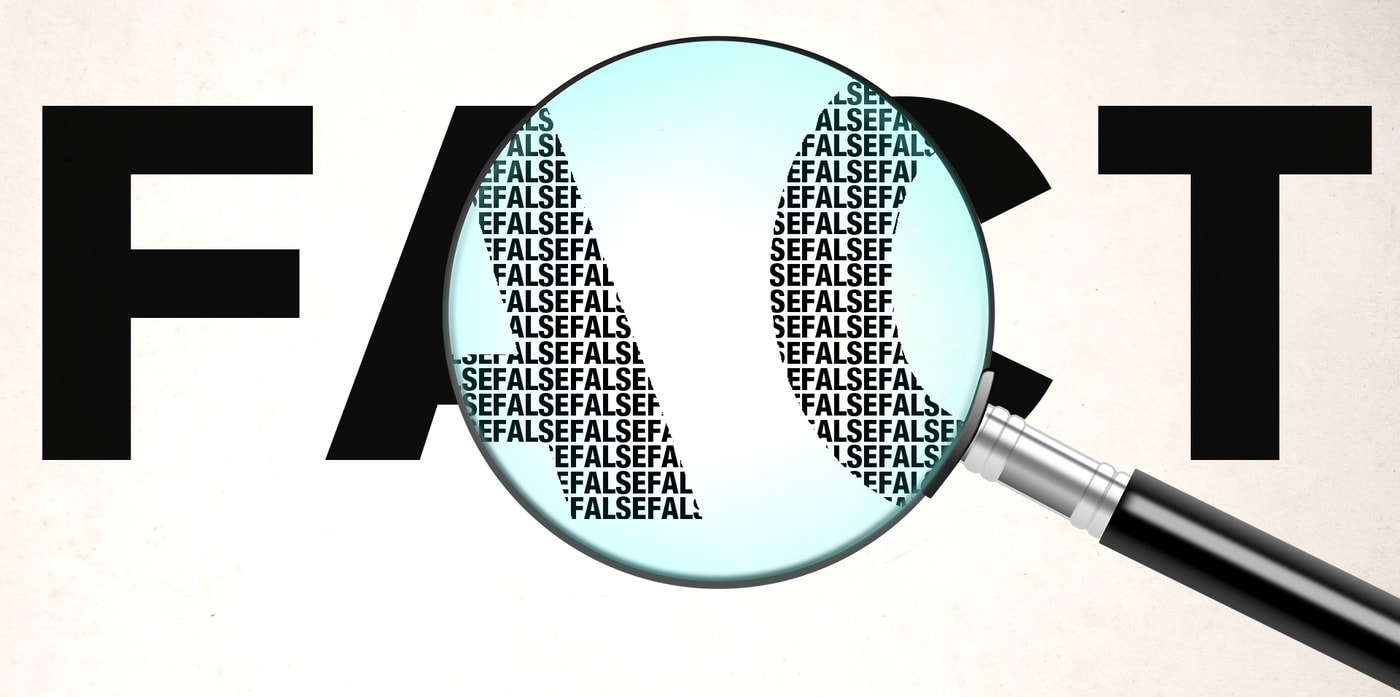Given the wealth of scientific evidence, mounting warnings from experts, and continued esclation in extreme weather witnessed around the world, it’s arguably surprising that there’s still somewhat a lack of clarity when it comes to public opinion on the climate crisis.
However, when placed into context with the increase in climate mis- and disinformation in circulation across mainstream and social media platforms, an insight into why this may be occuring perhaps becomes apparent.
The Climate Action Against Disinformation (CAAD) coalition, in collaboration with the Institute for Strategic Dialogue (ISD) and 15 global partners including Friends of the Earth, has released a new report “exposing new trends in climate mis- and disinformation at COP27.”
The “Deny, Deceive, Delay” report serves as a culmination of the research carried out by CAAD’s “COP27 Intelligence Unit” over the course of COP27 (the annual UN climate summit, held in Egypt last November) and beyond. The unit aimed to “track, expose and counter anti-climate attacks around the 2022 summit,” and they posted daily bulletins of their data analysis.
The report outlines how the challenges faced in 2022 associated with conflict, the cost-of-living crisis, and COVID-19, have contributed to the rise in online mis- and disinformation. The report states:
“Unsurprisingly, this environment has offered fertile ground for the spread of mis- and disinformation, and the opportunity to further a decades-long agenda of delaying climate action. The battle to counter this threat has never been more urgent, and we must call on every mechanism available to mount a response.”
Jennie King, Head of Climate Research and Response at ISD stated: “The events of 2022 turbocharged a global ecosystem for disinformation.”
Presenting a range of case studies and findings, the report details the kinds of mis- and disinformation found across a variety of platforms surrounding COP27 and provides a “roadmap for action in the year ahead” in the runup to COP28.
Erika Seiber, climate disinformation spokesperson at Friends of the Earth US, told Impakter: that
“Tech companies whose platforms amplify disinformation should prioritize transparency and accountability. They should demonetize the bad actors through measures like a basic three-strikes system. When disinformation spreads, the public has the right to know how and why their product caused harm – just like every other industry. As the climate crisis worsens by the day, it’s time for Big Tech to put our planet over profit.”
“This research shows that climate disinformation isn’t going away and, in fact, it’s getting worse,” said Seiber.
Here’s a look at some of the report’s key findings.
Today the @caadcoalition releases a NEW report revealing the rampant #climate #disinformation present at @COP27P, uncovering how much can be tied back to the #FossilFuels sector
Link ⬇️https://t.co/tuQ45mxUSV pic.twitter.com/aFdBoZ3cyq
— Climate Action Against Disinformation (@caadcoalition) January 19, 2023
Advertising
The report gave examples of a range of different adverts from the fossil fuel industry, “Carbon Major” companies, industry-related PR and lobbying groups, state-owned oil companies engaging in greenwashing, and organisations posting about climate denial.
For example, the report detailed how, according to Meta’s Ad Library, there were 3,781 adverts from “fossil fuel-linked entities” (which spent approximately USD $3-4 million on Facebook and Instagram between September 1 and November 23 2022) to spread false or misleading claims related to climate and fossil fuels.
“The Top 10 pages for ad volume and/or spend were primarily industry PR and lobbying groups,” states the report.
What’s more, according to the report, adverts from “Carbon Major” firms (the report explains these as “100 companies allegedly responsible for over 70% of all historic global greenhouse gas emissions”) like Shell, Chevron and ExxonMobil promoted the companies’ green efforts “despite investment portfolios that remain overwhelmingly biased towards oil and fossil gas.”
And the report also highlighted instances of organisations posting adverts containing “active climate denial.” The report mentioned one ad which stated: “New poll debunks the 97% consensus claim about #climate change,” and another campaign which posed the question: “Has environmentalism become a religion?”
The techniques used in ads were also covered in the report, with things like “nature-rinsing” (use of nature-related imagery to appear green) and “emotional messaging” related to fossil fuels (around subjects like livelihoods, national security and sovereignty) found to be commonly used.
The report also found that the most common narratives were those related to both energy independence and security as well as affordability and reliability of fossil fuels.
Trends
The report also highlighted an apparent rise in denialist content, and shared examples of some of the hashtags (e.g., #ClimateScam) used on Twitter related to denialism.
After spiking on the platform in July 2022, the report outlines how the #ClimateScam hashtag had amassed more than 362k mentions from 91k users, with contributions from “high-traction and verified accounts.” .
The report also mentions how the term seems to be trending despite data showing other hashtags like #ClimateCrisis and #ClimateEmergency having more activity and engagement. They also mention that the #ClimateScam trend wasn’t found to be apparent on other platforms.
“The term ‘Climate Scam’ is being actively recommended by Twitter for organic searches of ‘climate’, often as the top result, as well as when ‘#climate’ is included within a post,” reads the report, going on to stat: “The source of its virality is entirely unclear, and re-emphasises the need for transparency on how and why platforms surface content to users.”
“Climate disinformation is preventing everyday Twitter users from having substantive discussions on dire environmental problems and endangering climate negotiations globally,” Seiber told Impakter.
Narratives
The report explained that in order to successfully tackle “disinformation and anti-climate attacks,” it’s essential to understand which are the most popular narratives and also who is propagating them. To do so, the group looked into what they call key “battleground topics.”
There were five climate-related narratives monitored by CAAD in the period before, during and after COP27. These were:
- Cost of Living Crisis
- Culture Wars and Conspiracism
- Loss and Damage
- Anti- Green Technology
- Necessity of Fossil Fuels.
They found the most popular narratives to be centred around “anti-woke” messaging and climate conspiracy theories (e.g., “The Great Reset” and “New World Order”), with statements like “climate actors are alarmist” and “climate change is a hoax” receiving many likes.
Content related to “climate reparations,” contrasting Loss and Damage mechanisms to cost-of-living-related issues such as heating bills was apparent according to the report. “Wokewashing” in relation to green technologies and opposing climate action was another trend highlighted. And the report also mentioned how climate action and activism suffered renewed attacks sparked by high-profile protests.
"We must make lying wrong again."
— @antonioguterres stresses the need for global action to tackle disinformation and conspiracy theories, and to promote facts and science. https://t.co/NHi8lXodsk pic.twitter.com/GuVyJPl6KG
— United Nations (@UN) September 11, 2021
What needs to happen now?
COP27 saw record-breaking numbers of fossil fuel lobbyists in attendance at the summit. The CAAD coalition were in attendance, drawing attention to urgent need to address rising climate disinformation.
“COP27 became the first COP where climate misinformation became part of the conversation among country delegations and leaders,” said co-chair of Conscious Advertising Network,Jake Dubbins, adding:
“Leaders we spoke to from countries Germany to Saint Lucia were all deeply concerned about the disinformation war. If the urgency of the climate crisis continues to be undermined by mis- and disinformation, then the climate action we all so desperately need will continue to be delayed to the point of no return.”
What’s more, the COP28 summit is due to be held in December in the United Arab Emirates, and will be led by Sultan Al Jaber – the Minister of Industry and Advanced Technology as well as Managing Director of the Abu Dhabi National Oil Company.
The report highlights how going forward it will be important to keep an eye on the messaging of “Carbon Major companies, Petrochemical States and the wider fossil fuel lobby.”
“These developments should be a clarion call for even greater scrutiny into the information warfare delaying climate action; who funds it, who drives it, and where it is most successful,” states the report, calling for attention to be paid to tackling a range of misleading claims, promotions, arguments and solutions.
Friends of the Earth writes:
“CAAD calls on the US government, EU, UN, IPCC and Big Tech companies companies to acknowledge the climate disinformation threat and take immediate steps to improve transparency and data access to quantify disinformation trends, to stop misleading fossil fuel advocacy in paid ad content, enforce policies against repeat offenders spreading disinformation on platforms, and to adopt a standardized and comprehensive definition of climate disinformation.”
We all have a role to play in stopping the spread of harmful disinformation online, which can result in people being left uninformed, unprotected & vulnerable.
Pause and verify facts before sharing content online. https://t.co/qFqoh7loX2 pic.twitter.com/r5LdpE2QOG
— United Nations (@UN) December 25, 2022
— —
Correction: This article (including the title and subtitle and subheadings) has been entirely reworked (including content and overall message) to solely focus on the the “Deny, Deceive, Delay” report to avoid any possible misunderstanding or unfair assumptions, generally, or in relation to individuals, organisations or industries.
Editor’s Note: The opinions expressed here by the authors are their own, not those of Impakter.com — In the Featured Photo: Illustration by Carlos PX. Featured Photo Credit: Carlos PX/payforlayers.com














